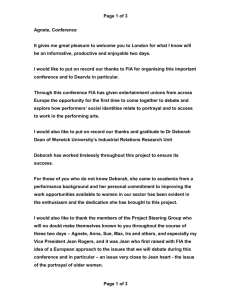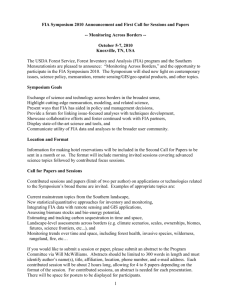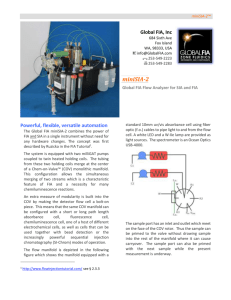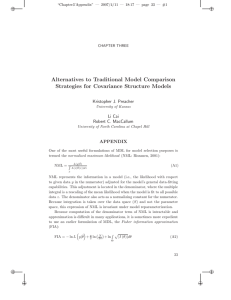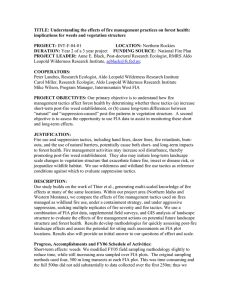Project 12: - NUI Galway
advertisement
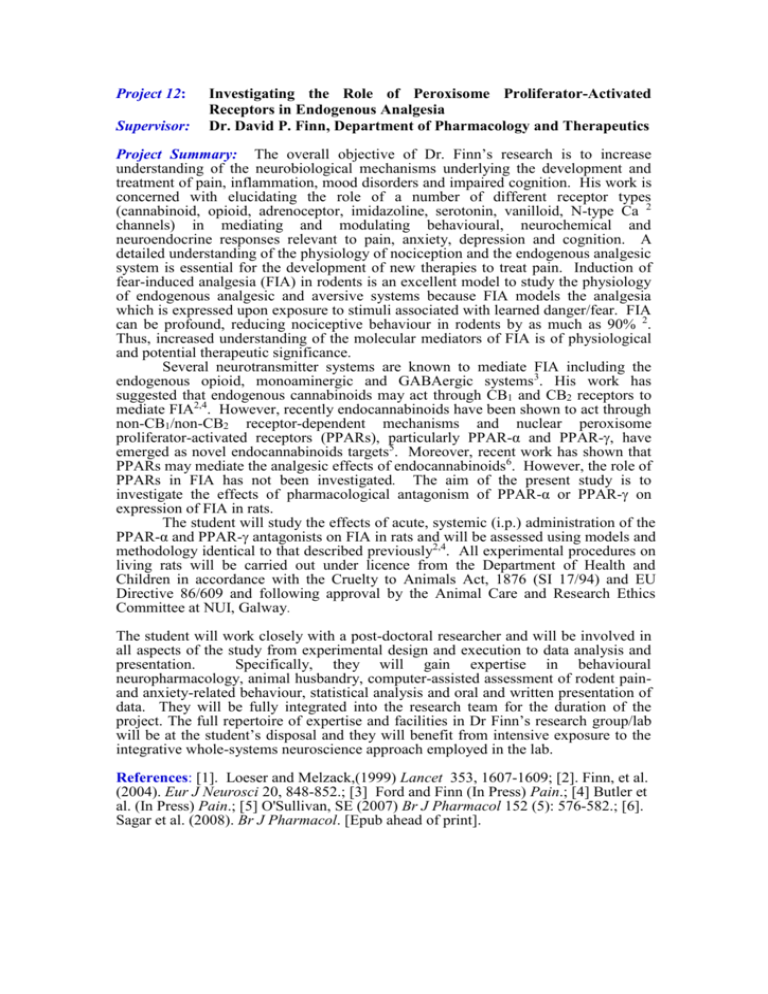
Project 12: Supervisor: Investigating the Role of Peroxisome Proliferator-Activated Receptors in Endogenous Analgesia Dr. David P. Finn, Department of Pharmacology and Therapeutics Project Summary: The overall objective of Dr. Finn’s research is to increase understanding of the neurobiological mechanisms underlying the development and treatment of pain, inflammation, mood disorders and impaired cognition. His work is concerned with elucidating the role of a number of different receptor types (cannabinoid, opioid, adrenoceptor, imidazoline, serotonin, vanilloid, N-type Ca 2 channels) in mediating and modulating behavioural, neurochemical and neuroendocrine responses relevant to pain, anxiety, depression and cognition. A detailed understanding of the physiology of nociception and the endogenous analgesic system is essential for the development of new therapies to treat pain. Induction of fear-induced analgesia (FIA) in rodents is an excellent model to study the physiology of endogenous analgesic and aversive systems because FIA models the analgesia which is expressed upon exposure to stimuli associated with learned danger/fear. FIA can be profound, reducing nociceptive behaviour in rodents by as much as 90% 2. Thus, increased understanding of the molecular mediators of FIA is of physiological and potential therapeutic significance. Several neurotransmitter systems are known to mediate FIA including the endogenous opioid, monoaminergic and GABAergic systems3. His work has suggested that endogenous cannabinoids may act through CB1 and CB2 receptors to mediate FIA2,4. However, recently endocannabinoids have been shown to act through non-CB1/non-CB2 receptor-dependent mechanisms and nuclear peroxisome proliferator-activated receptors (PPARs), particularly PPAR-α and PPAR-, have emerged as novel endocannabinoids targets5. Moreover, recent work has shown that PPARs may mediate the analgesic effects of endocannabinoids6. However, the role of PPARs in FIA has not been investigated. The aim of the present study is to investigate the effects of pharmacological antagonism of PPAR-α or PPAR- on expression of FIA in rats. The student will study the effects of acute, systemic (i.p.) administration of the PPAR-α and PPAR- antagonists on FIA in rats and will be assessed using models and methodology identical to that described previously2,4. All experimental procedures on living rats will be carried out under licence from the Department of Health and Children in accordance with the Cruelty to Animals Act, 1876 (SI 17/94) and EU Directive 86/609 and following approval by the Animal Care and Research Ethics Committee at NUI, Galway. The student will work closely with a post-doctoral researcher and will be involved in all aspects of the study from experimental design and execution to data analysis and presentation. Specifically, they will gain expertise in behavioural neuropharmacology, animal husbandry, computer-assisted assessment of rodent painand anxiety-related behaviour, statistical analysis and oral and written presentation of data. They will be fully integrated into the research team for the duration of the project. The full repertoire of expertise and facilities in Dr Finn’s research group/lab will be at the student’s disposal and they will benefit from intensive exposure to the integrative whole-systems neuroscience approach employed in the lab. References: [1]. Loeser and Melzack,(1999) Lancet 353, 1607-1609; [2]. Finn, et al. (2004). Eur J Neurosci 20, 848-852.; [3] Ford and Finn (In Press) Pain.; [4] Butler et al. (In Press) Pain.; [5] O'Sullivan, SE (2007) Br J Pharmacol 152 (5): 576-582.; [6]. Sagar et al. (2008). Br J Pharmacol. [Epub ahead of print].

